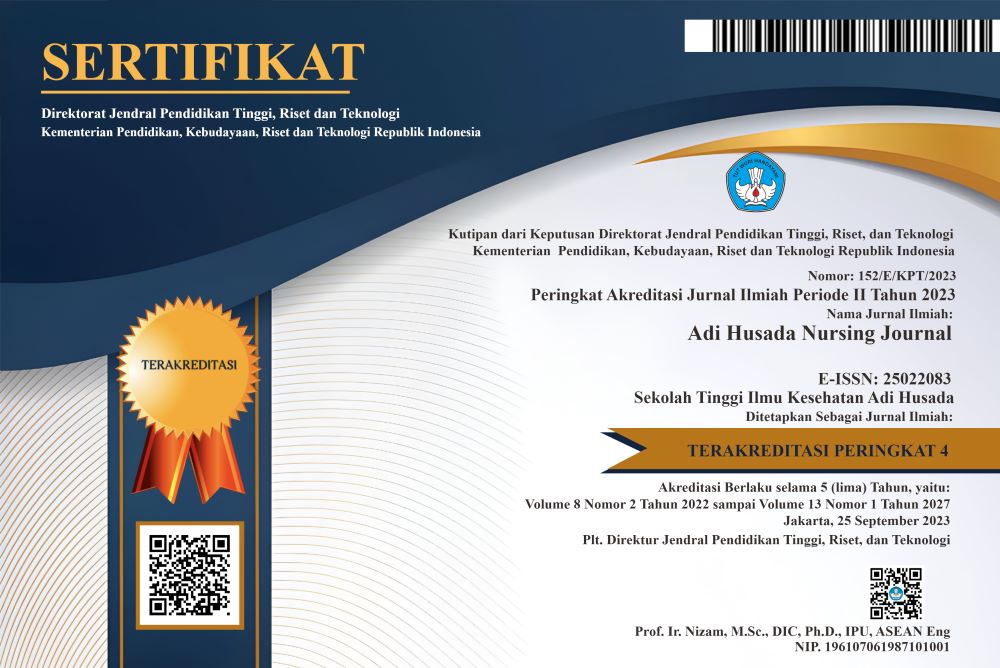The Relationship Between Parenting Styles and Violent Behavior in Adolescent Inmates
Abstract
Adolescence is a critical developmental period marked by identity exploration and vulnerability to negative influences, with parenting playing a significant role in shaping behavior. This study investigates the relationship between parenting styles and violent behavior among adolescent inmates, focusing on two correctional institutions. The research employed a cross-sectional quantitative design, utilizing questionnaires to collect data from adolescent inmates in two prisons. The analysis focused on identifying the predominant parenting styles experienced by the inmates and the prevalence of violent behavior within this population. The findings revealed that authoritarian parenting was the most common style reported by respondents, and a high level of violent behavior was observed among the inmates. Statistical analysis (p-value=0.001) demonstrated a strong and significant correlation between authoritarian parenting and the occurrence of violent behavior, indicating that strict and inflexible parenting approaches contribute to the development of aggression in adolescents. These results underscore the importance of fostering positive parenting practices and providing targeted interventions in correctional settings to reduce violence among adolescents. Low educational attainment and external factors, such as peer influence and family instability, further exacerbate violent tendencies. Understanding the impact of parenting styles is essential for developing effective prevention and rehabilitation strategies for young offenders.
References
Ani, S. P. (2020). PENGARUH POLA ASUH PERMISIF ORANG TUA TERHADAP SELF-CONTROL (Studi pada Siswa Kelas VIII SMP Negeri 2 Rambang Kabupaten Muara Enim). Psikodidaktika: Jurnal Ilmu Pendidikan, Psikologi, Bimbingan Dan Konseling, 5(1), 56. https://doi.org/10.32663/psikodidaktika.v5i1.986
Bandura, A., & Walters, R. (1977). The Social Learning Theory of Aggression.
Christopher, B. (2022). Perancangan Produk Lifestyle Sebagai Media Ekspresi Emosi Remaja Indonesia. SERENADE : Seminar on Research and Innovation of Art and Design, 1. https://doi.org/10.21460/serenade.v1i1.26
Febrina, S. F. Z., Khairina, & Nadia. (2024). Tinjauan Pola Asuh Otoriter dari Perspektif Teori Baumrind pada Remaja dan Kaitannya dengan Perilaku Agresif. Flourishing Journal, 4(6), 266–273. https://doi.org/10.17977/um070v4i62024p265-273
Lohy, M. helena, & Pribadi, F. (2021). Kekerasan Dalam Senioritas Di Lingkungan Pendidikan. Jurnal Ilmiah Dinamika Sosial, 5(1), 159–171. https://doi.org/10.38043/jids.v5i1.2938
Manto, O. A. D., Nito, P. J. B., & Wulandari, D. (2020). Kejadian Bullying pada Siswa Sekolah Menengah Atas Negeri Banjarmasin Timur. Dinamika Kesehatan Jurnal Kebidanan Dan Keperawatan, 11(2).
Rizki, F., & Appulembang, Y. A. (2021). Peran Efikasi Diri Terhadap Penyesuaian Diri Selama Pembelajaran Online. Psyhology Journal of Mental Health, 3(1), 70–81.
Rulmuzu, F. (2021). Kenakalan Remaja Dan Penanganannya. JISIP (Jurnal Ilmu Sosial Dan Pendidikan), 5(1), 364–373. https://doi.org/10.58258/jisip.v5i1.1727
Saputri, L. M., Suhartono, S., & Wahyudi, W. (2022). Pengaruh Pola Asuh Orang Tua Terhadap Hasil Belajar Matematika Siswa Kelas Iv Sdn Sekecamatan Kutoarjo Tahun Ajaran 2020/2021. Kalam Cendekia: Jurnal Ilmiah Kependidikan, 10(1). https://doi.org/10.20961/jkc.v10i1.55074
Selviana, A. (2024). Analisis Faktor-Faktor Remaja Melakukan Tindakan Kekerasan di Desa Habi Kecamatan Kangae Kabupaten Sikka. Seminar Nasional Teknologi, Kearifan Lokal Dan Pendidikan Transformatif (SNTEKAD), 1(2), 222–228. https://doi.org/10.12928/sntekad.v1i2.15815
Suskandeni, N. P. I., Wasliah, I., & Utami, K. (2018). Hubungan Pola Asuh Orang Tua Terhadap Kemandirian Anak Usia Prasekolah Di Tk Negeri Pembina Lombok Barat 2017. Jurnal Keperawatan, 6(1), 103–114.
Ugita, M. P., Patricia, H. P., Nofila, M., & Akmalia, F. (2023). Perilaku Agresif Anak Usia Dini Pendidikan peserta didik yang berperan aktif dalam. Jurnal Online Universitas PGRI Palembang, 97–107.
Widara, W., Ismail, M., & Rispawati, R. (2019). POLA ASUH DEMOKRATIS ORANG TUA BERSTATUS MENAK DALAM KEBERHASILAN PENDIDIKAN ANAK (Studi Deskriptif Di Dusun Sintung Timur Desa Sintung). Jurnal Pendidikan Sosial Keberagaman, 6(2), 151–164. https://doi.org/10.29303/juridiksiam.v6i2.98
Keywords
Adolescents, Inmates, Parenting Style, Violent Behavior

This work is licensed under a Creative Commons Attribution 4.0 International License.








